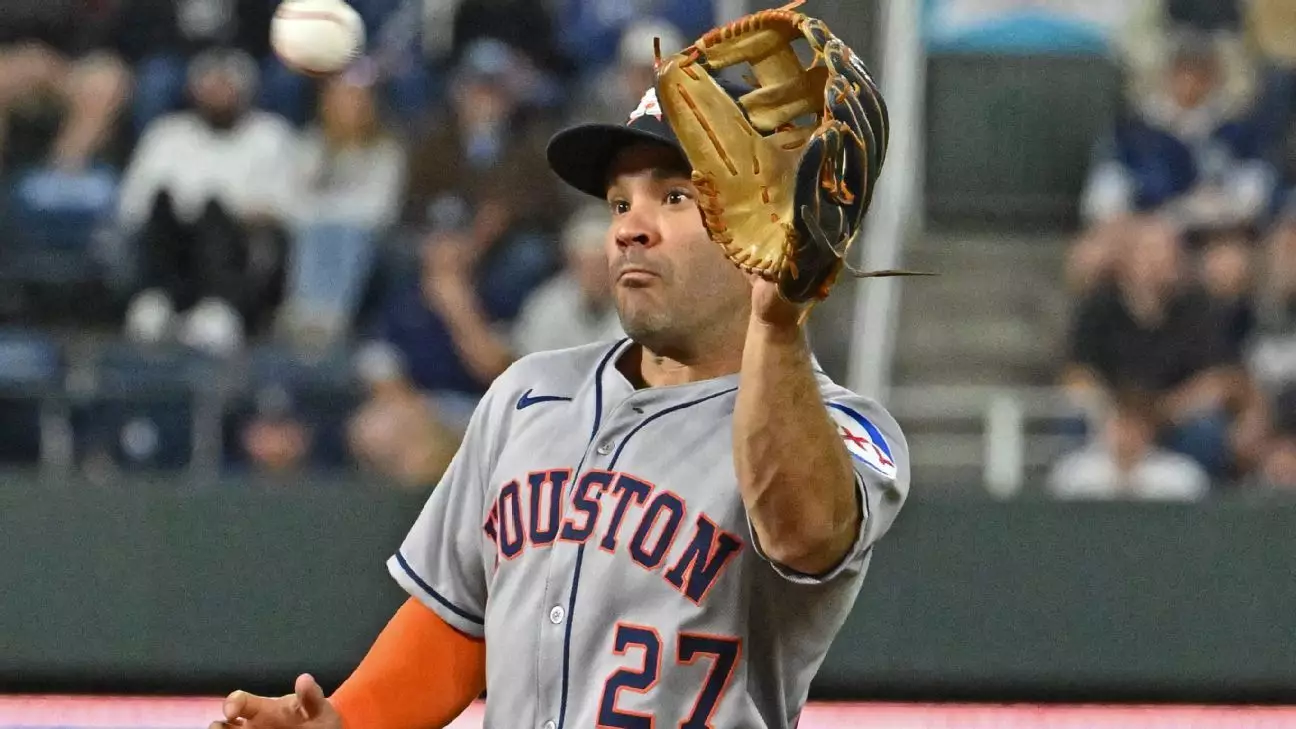In a surprising but strategic move, Houston Astros’ Jose Altuve has made the decision to step away from his long-held leadoff role, opting instead for the second spot in the batting order. This adjustment, reportedly requested by Altuve himself, offers a fascinating look into how personal preferences and tactical considerations can intertwine in professional sports. Altuve’s reasoning is refreshingly pragmatic; he craved just a bit more time to prepare for each at-bat after spending the previous inning in left field—an unusual position for him after dedicating 14 seasons to playing second base. This change marks a significant shift in both his position on the field and the overall batting strategy for the Astros.
Altuve has embraced this new chapter with vigor, reflecting the adaptability and resilience that have characterized his impressive career. In the Astros’ 8-5 victory over the Detroit Tigers, Altuve made his mark not only with a crucial two-run homer but also by demonstrating that he can thrive in new circumstances. At 34 years old, many might assume that adapting to positional changes would be daunting, yet Altuve’s enthusiasm and desire to contribute shine through.
Young Talent Stepping Up
Entering this season, the Astros faced lineup upheaval, primarily due to the trades of key players like Kyle Tucker and the departure of Alex Bregman. In this context, Jeremy Peña has emerged as a promising young talent, stepping into the leadoff spot. Peña’s recent performance has been commendable; he recorded two hits and scored twice in the same game where Altuve transitioned to second. These developments indicate a maturing roster where younger players are being entrusted with crucial roles. Altuve’s support for Peña, suggesting a willingness to sacrifice individual accolades for team strategy, illustrates an impactful shift in leadership dynamics.
Notably, Peña’s ability to get on base presents exciting opportunities for the Astros’ seasoned hitters—a crucial element in baseball strategy that can often be overlooked. Altuve recognizes this potential, emphasizing how Peña’s speed and aggressive base running can reshape how opponents defend against them. An experienced player actively promoting a younger colleague’s role highlights the importance of mentorship in sports, where collaboration can often outshine individual talent.
The Bigger Picture
The Astros’ decision to shuffle their batting order is not merely about personal preference; it’s a reflection of larger strategies aimed at optimizing performance. Altuve’s insistence on moving down the order speaks to a broader sport ethos: flexibility and collaboration can lead to success. By shifting roles, Altuve potentially rejuvenates not just his own game but lifts the entire team’s dynamics. It also hints at a serious philosophical approach within the team, where egos are set aside for the collective good.
Manager Joe Espada has evidently recognized Altuve’s insights and remains open to dialogue regarding lineup adjustments. This collaborative exchange indicates a coaching philosophy built on mutual respect and adaptability. As Altuve put it, “In the end, it doesn’t really matter if I play second or left; I just want to be in the lineup and help this team to win.” Such sentiments resonate widely and remind us that at its core, the game of baseball, like many team sports, revolves around collaboration, communication, and trust.
The Impact of Change on Team Chemistry
The shifts within the Astros’ lineup have the potential to instigate a unique blend of experience and exuberance that could be pivotal in shaping the team’s trajectory throughout the season. Altuve’s veteran presence, coupled with Peña’s youthful energy, creates a compelling framework for success. By allowing younger players to take the reins while providing them with support and encouragement, Altuve exemplifies the role of a leader—transitioning from a purely individual contributor to a guiding force for emerging talent.
As the season progresses, it will be intriguing to monitor how this different approach impacts the Astros’ overall performance. Team chemistry has become an increasingly recognized element of success; thus, Altuve’s transition might not just be a personal adjustment but is likely to become a significant strategic advantage. A team that adapts swiftly to change, whether through player adjustments or strategic insights, is often a formidable opponent in MLB.
The notion that even established stars must evolve serves as an inspiring lesson for athletes across all sports—not every champion remains in their original role. Altuve’s journey is a testament to the strength of adaptability and the refreshing dynamics of team collaboration.

